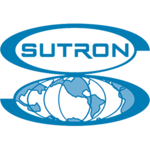Description

Adverity

Mediarithmics
Comprehensive Overview: Adverity vs Mediarithmics
Adverity and Mediarithmics are both prominent players in the field of marketing technology, each offering specific solutions designed to improve the efficiency and efficacy of marketing operations. Here’s a detailed overview:
Adverity
a) Primary Functions and Target Markets:
- Primary Functions: Adverity is a data intelligence platform that focuses on marketing analytics and data integration. It offers features for data collection, integration, and visualization, enabling businesses to consolidate data from various sources and create dynamic dashboards for real-time insights. The platform supports automated data management, which enhances marketing performance analysis and strategic decision-making.
- Target Markets: Adverity primarily targets marketing teams, agencies, and enterprises looking to optimize their marketing data management. It is popular among businesses that need to handle large volumes of data from multiple channels and wish to unify and analyze this data efficiently. Industries like retail, e-commerce, FMCG, and telecommunications frequently use Adverity’s solutions.
b) Market Share and User Base:
- Adverity operates in a competitive market alongside other data analytics and business intelligence platforms. While specific market share data may not be publicly detailed, Adverity is notable for its partnerships with large enterprises and agencies, contributing to a robust user base in Europe and North America. It’s positioned strongly among mid-to-large-sized businesses needing sophisticated data integration and analytics capabilities.
c) Key Differentiating Factors:
- Adverity distinguishes itself with a strong focus on automating data integration and providing flexibility in connecting with a wide variety of data sources.
- It offers a user-friendly interface that allows marketers and non-technical users to create dashboards and reports without deep technical expertise.
- The platform emphasizes scalability, handling increasing data volumes efficiently and providing extensive customization options.
Mediarithmics
a) Primary Functions and Target Markets:
- Primary Functions: Mediarithmics is a data marketing platform that offers solutions for data management and personalized marketing, including data management platforms (DMP), customer data platforms (CDP), and multichannel campaign management. It enables advertisers and marketers to create, manage, and optimize personalized marketing campaigns, leveraging first-party data effectively.
- Target Markets: Mediarithmics primarily targets media agencies, advertisers, and publishers looking for advanced audience segmentation and targeting capabilities. Its solutions are tailored for businesses seeking to harness first-party data to enhance customer engagement and optimize advertising spend across digital channels.
b) Market Share and User Base:
- Mediarithmics is a key player in the European market for DMP and CDP solutions, holding a respectable position among competitors in the personalized marketing landscape. Its user base is relatively concentrated in Europe and includes several large media companies and advertisers seeking robust data-driven marketing solutions.
c) Key Differentiating Factors:
- A core differentiator for Mediarithmics is its emphasis on leveraging first-party data to drive marketing personalization, which is crucial in a privacy-conscious market.
- The platform offers a combined DMP and CDP solution, enabling seamless data integration from various sources and facilitating sophisticated audience segmentation.
- Mediarithmics also provides advanced tools for real-time data activation, supporting dynamic and personalized marketing campaigns effectively.
Comparison:
While both Adverity and Mediarithmics are involved in marketing data platforms, their focus areas are notably different. Adverity is centered around data integration and analytics, aiming to streamline data management across diverse sources. Mediarithmics, on the other hand, focuses on audience data management and personalized marketing, targeting the optimization of customer engagement strategies. Businesses choosing between the two platforms would likely weigh their priority on either data analytics capabilities or personalized marketing execution based on first-party data.
In terms of market presence, both platforms hold prominent positions within their niches, although they may vary in terms of geographical reach and specific industry focus. As marketing technology continues to evolve, both Adverity and Mediarithmics are likely to adapt to new data privacy regulations and expanding technological capabilities to maintain their competitive edge.
Contact Info

Year founded :
2015
+43 1 8903155
Not Available
Austria
http://www.linkedin.com/company/myadverity

Year founded :
2013
+33 6 11 76 23 48
Not Available
France
http://www.linkedin.com/company/mediarithmics
Feature Similarity Breakdown: Adverity, Mediarithmics
a) Core Features in Common
-
Data Integration and Aggregation:
- Both Adverity and Mediarithmics offer robust data integration capabilities, allowing users to connect and aggregate data from multiple sources. This is crucial for centralized data management and analysis.
-
Data Visualization:
- These platforms provide strong data visualization tools that enable users to create interactive dashboards and reports to better understand their data insights.
-
Advanced Analytics:
- Both platforms support advanced analytics features, including predictive analytics and machine learning capabilities that help users derive actionable insights from their data.
-
Real-time Data Processing:
- Real-time data processing is a key feature in both products, enabling timely decision-making based on the most current data available.
-
Customizable Reporting:
- Users can create customized reports tailored to their specific business needs on both platforms.
b) User Interfaces Comparison
-
Adverity:
- Adverity's user interface is generally user-friendly and intuitive, with a strong focus on ease of use for non-technical users. It offers drag-and-drop functionality for building dashboards and integrating different data sources, which simplifies the data handling process.
-
Mediarithmics:
- Mediarithmics' interface is also considered user-friendly but is more geared towards users with a bit of technical background, primarily because it often targets marketers and data professionals who are comfortable working with complex datasets. It provides a comprehensive view of data flows and marketing analytics, with some users finding it slightly less intuitive than Adverity due to its depth of features.
c) Unique Features
-
Adverity:
- Marketing BI (Business Intelligence) Specialization: While both provide BI capabilities, Adverity is often particularly noted for its focus on marketing intelligence, making it a strong choice for marketing teams that require in-depth marketing performance data.
- Automated Data Harmonization: Adverity offers automated data harmonization that assists in creating a single source of truth by standardizing data formats and naming conventions.
-
Mediarithmics:
- Customer Data Platform (CDP) Capabilities: Mediarithmics stands out with its comprehensive CDP features, enabling deep customer data insights and personalized journey mapping, which is especially valuable for marketing and sales teams focused on customer relationship management.
- Omnichannel Marketing Automation: Mediarithmics allows for advanced omnichannel marketing automation, providing tools to manage and automate marketing efforts across various channels seamlessly.
In summary, while both platforms share a common core set of features that support data integration, analysis, and visualization, their nuanced differences and unique features cater to different user needs and expertise levels. Adverity tends to emphasize ease of use and marketing intelligence, while Mediarithmics offers strong CDP features and advanced marketing automation.
Features

Data Visualization
Data Management
Advanced Analytics
Data Integration

Not Available
Best Fit Use Cases: Adverity, Mediarithmics
Adverity and Mediarithmics are both powerful tools in the realm of data analytics and marketing, catering to different needs and industries with their unique offerings. Here's an overview of their best-fit use cases:
Adverity
a) Best Fit Use Cases for Adverity:
-
Marketing and Advertising Agencies:
- Data Integration & Management: Adverity excels in consolidating data from various marketing channels and platforms. Agencies dealing with multiple clients and campaigns can greatly benefit from its ability to streamline reporting and analytics.
- Cross-Channel Marketing Analytics: Businesses focused on multi-channel strategies can leverage Adverity's powerful data integration to gain a holistic view of their marketing performance.
-
E-commerce & Retail Businesses:
- Performance and ROI Analysis: Adverity offers tools for understanding customer behavior and sales patterns, which are crucial for e-commerce businesses aiming to optimize campaigns for maximum ROI.
- Inventory and Sales Data Integration: Retailers can integrate sales data with marketing efforts to better align their supply chain and marketing strategies.
-
Enterprises with Complex Data Needs:
- Adverity's scalability and robust data-handling capabilities make it ideal for large enterprises with vast amounts of complex data across multiple global regions.
d) Catering to Industry Verticals or Company Sizes:
- Industry Verticals: Particularly beneficial for retail, e-commerce, and advertising industries where data integration from numerous sources is critical.
- Company Sizes: Scalable for mid-sized to large enterprises needing robust data integration and real-time insights.
Mediarithmics
b) Best Fit Use Cases for Mediarithmics:
-
Media and Publishing Companies:
- Audience Management: Mediarithmics provides tools for better understanding and segmenting audiences, critical for media companies looking to deliver personalized content and advertising.
- Programmatic Advertising: Its capabilities in automating media purchasing and delivery are ideal for enhancing programmatic ad strategies.
-
Telecommunications:
- Customer Data Platforms (CDP): Telecom companies can utilize Mediarithmics for building comprehensive customer profiles and improving customer engagement through targeted offers.
-
Businesses Focused on Privacy-First Marketing:
- With increased focus on data privacy, companies can leverage Mediarithmics' privacy-centric approach to data management and marketing.
d) Catering to Industry Verticals or Company Sizes:
- Industry Verticals: Especially relevant to media, publishing, and telecom industries where understanding and leveraging customer data is crucial.
- Company Sizes: Suited for medium to large enterprises looking for advanced customer data platforms and programmatic advertising solutions.
Conclusion
Adverity and Mediarithmics cater to different niches within the data analytics and marketing space. Adverity is well-suited for businesses with diverse and complex data sources looking for robust integration and analytics capabilities. In contrast, Mediarithmics is targeted towards companies needing advanced customer data management and programmatic advertising tools, particularly in industries where audience segmentation and privacy are priorities. Both platforms offer scalable solutions tailored to meet the needs of medium to large enterprises across various industries.
Pricing

Pricing Not Available

Pricing Not Available
Metrics History
Metrics History
Comparing teamSize across companies
Conclusion & Final Verdict: Adverity vs Mediarithmics
When comparing Adverity and Mediarithmics, the best choice will depend on the specific needs and context of the user. Each product has its own strengths and weaknesses, which should be considered to determine the best overall value for a given organization.
a) Considering all factors, which product offers the best overall value?
Best Overall Value: The best value depends on the specific use cases and needs. Generally, if an organization is primarily focused on advanced analytics and unified data integration, Adverity might offer better value. However, if the focus is on personalized marketing campaigns and programmatic advertising, Mediarithmics could be more beneficial.
b) Pros and Cons of Choosing Each Product
Adverity
Pros:
- Data Integration: Strong capabilities in connecting and integrating data from various sources into a single platform.
- Advanced Analytics: Offers robust analytics and reporting tools to derive insights from unified data.
- Scalability: Effective for organizations looking to scale their data operations.
- User-Friendly Interface: Known for a more intuitive dashboard that simplifies data interactions.
Cons:
- Specific Focus: Primarily focused on data intelligence, which may not cover extensive marketing campaign management features.
- Learning Curve: Organizations might experience a learning curve when integrating with existing systems.
Mediarithmics
Pros:
- Marketing Automation: Strong capabilities in creating personalized marketing campaigns and programmatic advertising.
- Customer Data Platform: Effective in managing and activating customer data for targeted marketing.
- Omnichannel Reach: Supports cross-channel marketing strategies with a unified approach.
Cons:
- Integration: Might have limited integration capabilities compared to data-focused platforms.
- Complex Features: More complex user interface for those unfamiliar with advanced marketing automation tools.
c) Specific Recommendations for Users
-
Assess Needs: Clearly identify your organization’s priorities. If data integration and analytics are paramount, lean towards Adverity. If personalized marketing and customer data management are critical, Mediarithmics could be a better fit.
-
Integration Requirements: Consider current IT infrastructure and integration needs. Check compatibility and ease of integration with existing tools and systems.
-
Scalability: Consider future growth and scalability needs. Choose a platform that can accommodate future expansion in data sources or marketing channels.
-
Budget Considerations: Evaluate budget constraints against the features each platform provides, ensuring the investment aligns with expected ROI.
-
Trial and Testing: If uncertain, take advantage of demo versions or trials to understand the user experience and feature applicability.
In conclusion, both Adverity and Mediarithmics provide significant advantages depending on their use cases. Close evaluation of an organization's current and future goals, along with thorough testing, can greatly aid in making an informed decision.
Add to compare
Add similar companies




